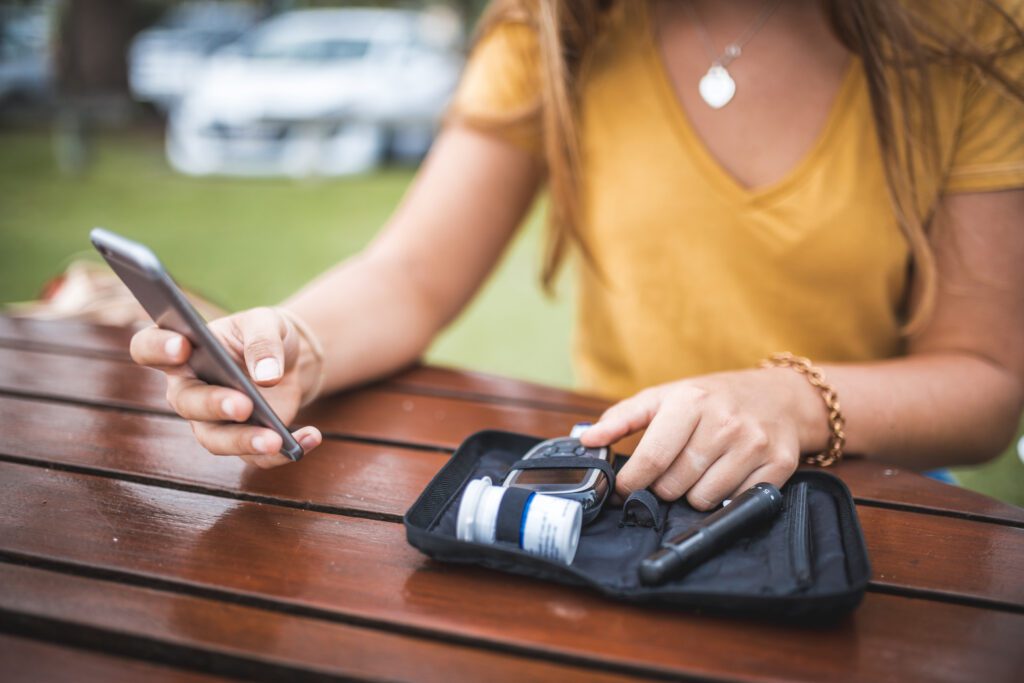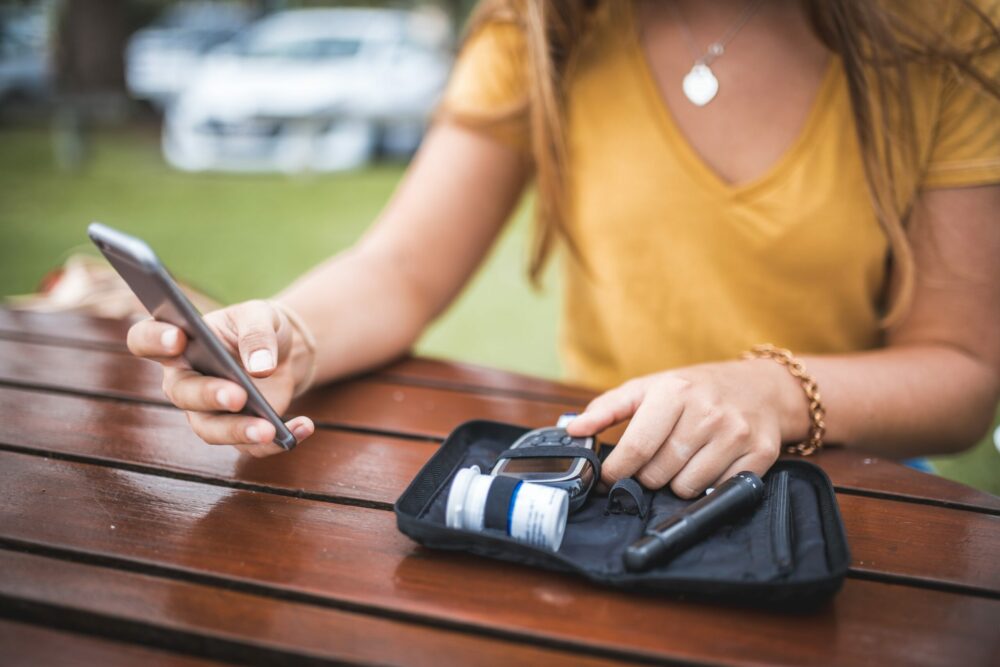
February 15, 2024
The Latest Advancements in the Medical Device Industry

Last year, the FDA’s Center for Devices and Radiological Health authorized a record number of novel medical devices. The medical device industry is projected to grow to $182 billion this year, and California is home to the largest percentage of the country’s medical device companies, with Orange County being a leader in this sector. Today’s medical devices are life-changing for many patients: some can incorporate smart phones to monitor glucose levels for people with diabetes in real-time, help patients who suffered from burns recover quicker, and detect infections. A number of Biocom California member companies are a part of this wave of innovation—read on for the latest news in this growing field.
Better Treatment for Burn Patients
Patients who suffer from second- or third-degree burns (or full-thickness burns) often require specialized treatment, surgery, and skin grafts, and have a long road to recovery. UC San Diego Regional Burn Center says more than 60 percent of patients admitted to burn centers in the U.S. are five years old or younger. Avita Medical developed a revolutionary device that physicians can use to treat burn patients: ReCell. The device enables physicians to harvest a skin sample from the patient—as a small as a postage stamp—which is then mixed with a solution. The resulting mixture of healthy skin cells—called Spray-On Skin—is sprayed onto the burn areas, facilitating the faster regeneration of tissue and allows physicians to treat a large area of the patient’s body. This story further illustrates how physicians successfully used ReCell to help a patient who suffered from serious burns. Last year, ReCell received approval for additional uses, including to treat full-thickness skin defects and skin lesions caused by vitiligo.
Always on Alert
Before continuous glucose monitoring (CGM) technology became widely available, patients with Type 1 and Type 2 diabetes had to rely on frequent finger pricks to draw a blood sample and apply it to a testing strip to track their glucose levels. San Diego-based Dexcom has been at the forefront of advancing CGM technology, which provides patients with a much less cumbersome option to effectively monitor their glucose levels throughout the day: a small device worn like a patch has a sensor inserted under the skin that sends real-time data to the patient’s smartphone or smartwatch, as shown in the company’s latest G7 device. The device can alert patients when their levels are becoming too low or high, and allows the wearer to share their glucose levels with up to ten people of their choosing. Internationally, the company recently announced the launch of Dexcom One+ CGM system in parts of Western Europe with plans for expansion in the Middle East and Africa.
Working in Tandem
Tandem Diabetes, another pioneer in the diabetes and medical device field, has developed automated insulin pumps that significantly improve patients’ quality of life and can potentially eliminate the need for multiple daily injections. The company’s insulin pumps are designed to work seamlessly with some models of Dexcom’s glucose monitoring technology. Additionally, their t:slim X2 insulin pump featuring Control-IQ technology was recently announced as the first automated insulin pump to integrate with Abbott’s new CGM technology, the FreeStyle Libre 2 Plus sensor. Last year, Tandem Diabetes introduced the soon-to-be-released Mobi system, which claims to be the world’s smallest insulin-delivery system—it’s small enough to fit inside the coin pocket of a pair of jeans.
Of Heart and Mind
Vascular conditions in the brain can be complex to treat. MicroVention, a part of Terumo Corporation, specializes in developing advanced tools—such as stents, coils, and flow diversion devices—which physicians use to treat and help prevent aneurysms and intracranial atherosclerosis (a build up of cholesterol plaque that may cause a stroke) in a minimally invasive way that can also improve the patient’s quality of life. Last year, the company entered the transradial access therapy space and received FDA clearance for its SOFIA EX 5F 115 cm Intracranial Support Catheter, which the company says effectively tracks intracranial locations in patients and is implanted in the radial artery in the wrist (vs. the femoral artery). “This achievement signifies our commitment to radial neurointervention and represents our unwavering commitment to improving healthcare and helping to save patient lives, while striving to be at the forefront of innovation,” CEO Carsten Schroeder said in a release. The global company has a manufacturing facility in Aliso Viejo.
From the Comfort of Home
Cue Health has a developed a suite of at-home test kits that can save consumers a trip to the doctor’s office and allows them to monitor their health from the comfort of home. Tests can be ordered online and range from identifying food sensitivities to monitoring Vitamin D levels, a PCR-quality COVID-19 test and kits for assessing cardiac risks. The San Diego-based company received a $28 million contract from the Biomedical Advanced Research and Development Authority (BARDA) last year to develop a single test that can detect two strains of influenza, respiratory syncytial virus (RSV) and COVID-19.